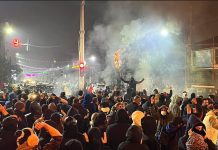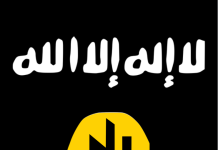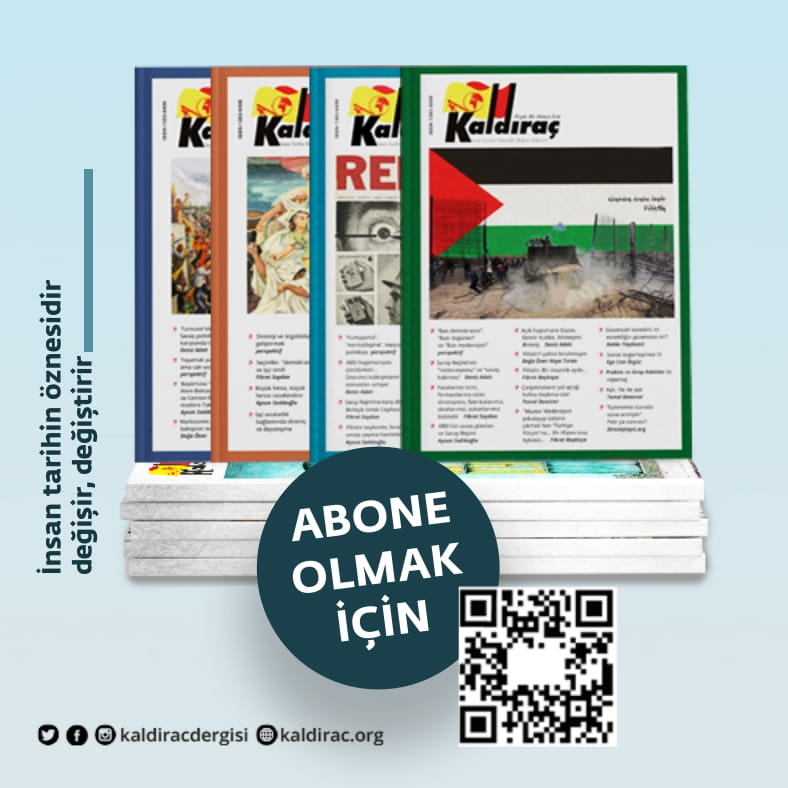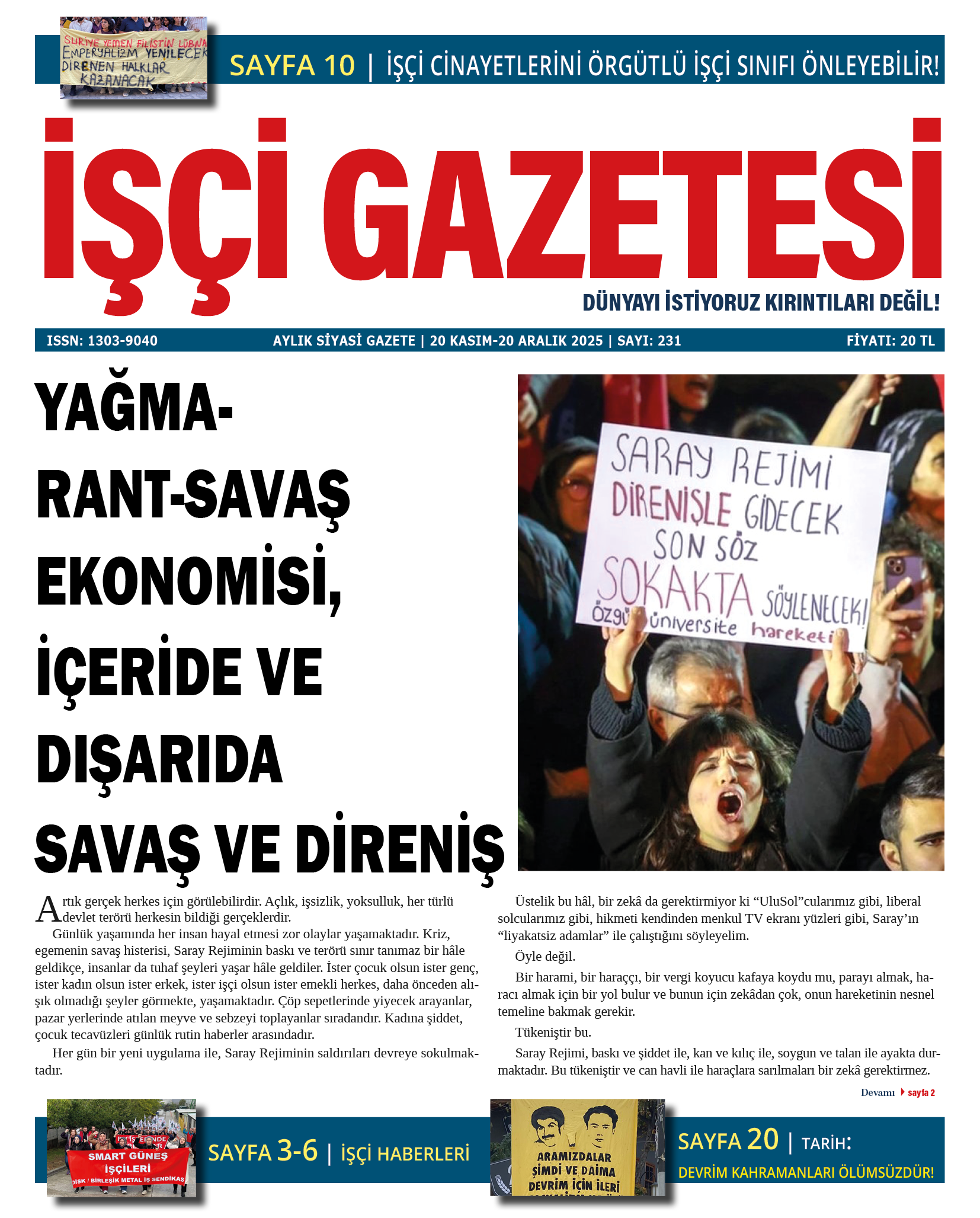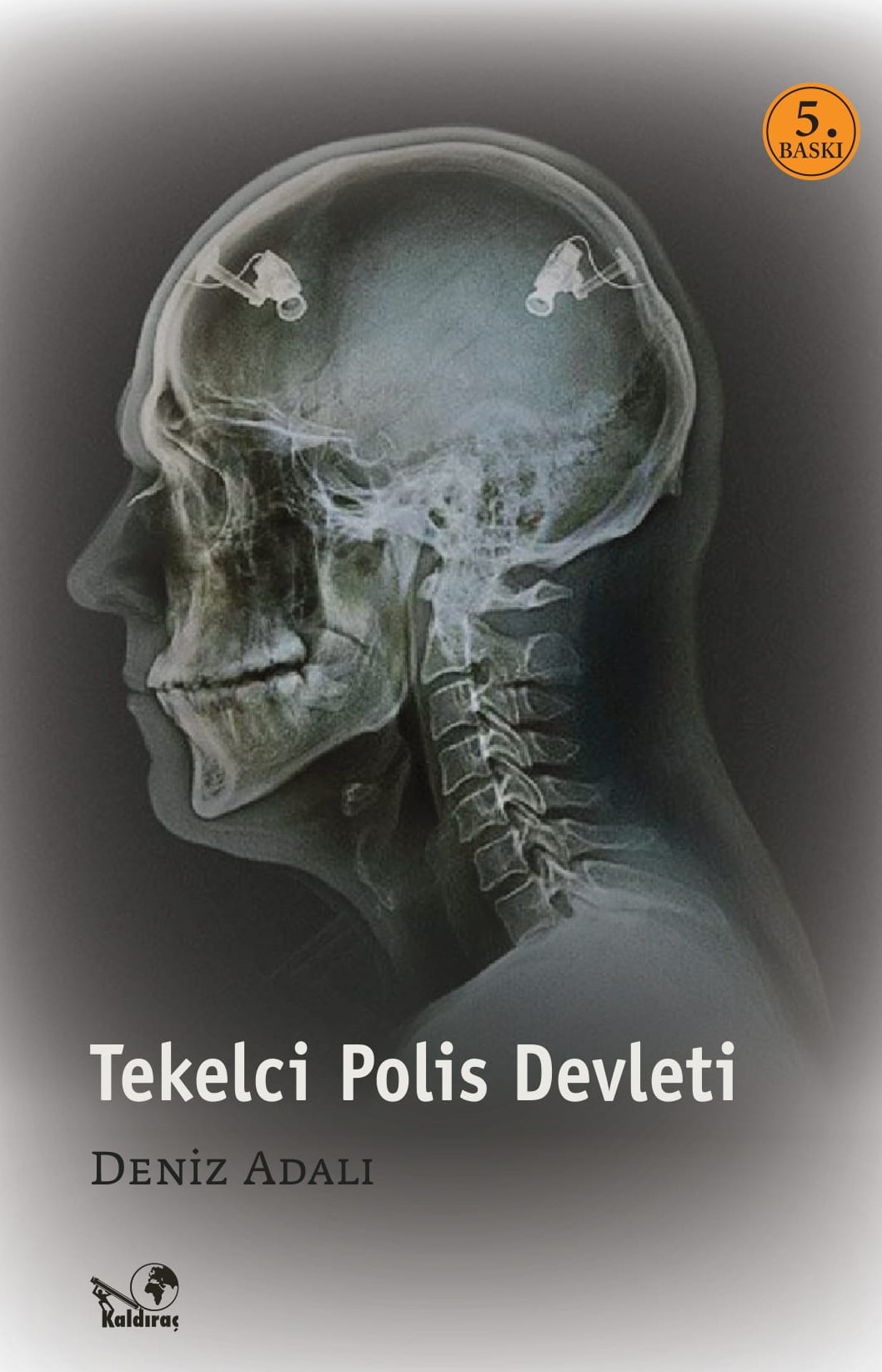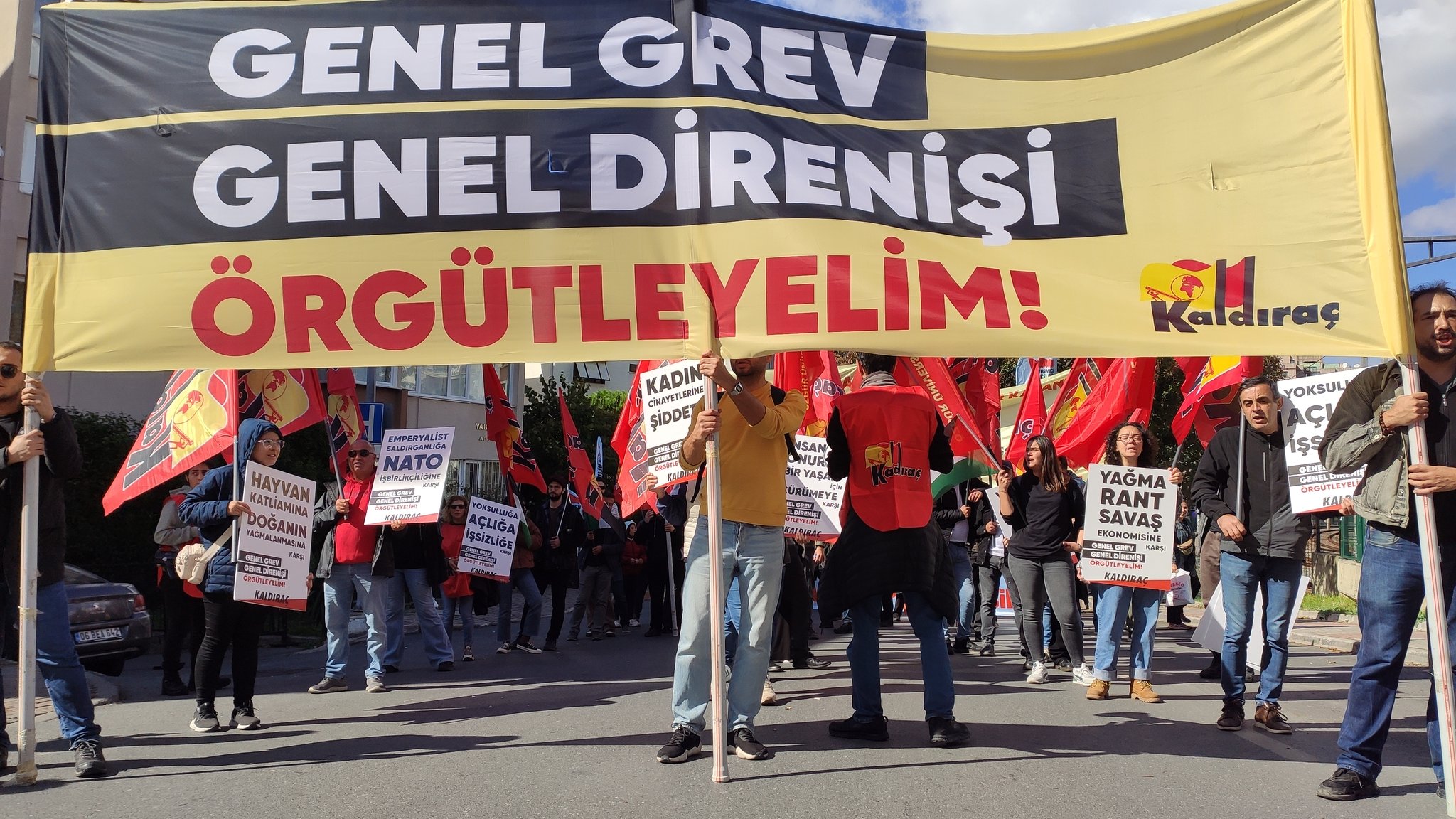Deniz Adalı
August 2025 – Kaldıraç Issue 289
When you put the question as in the title, “The Middle East: Division or revolution”, of course the answer will be revolution. But this is not just some kind of a brain gymnastics. It is not, because the war of partition in the Middle East is advancing at breakneck speed. The five imperialist powers of the world, especially the imperialist West (including Japan), have taken action immediately to redivide the world after the dissolution of the USSR. Germany, for example, has turned most of Eastern Europe into its market. Yugoslavia was partitioned between the USA and Germany, etc. I presume that this aspect of the issue, i.e. the war of redistribution, started between the USA, Germany, France, Britain and Japan is already known. For this reason, we will not dwell on the commercial and market wars, the invasions of Afghanistan, Iraq, Libya and most recently Syria, one by one.
The war was actually on the agenda because of the unraveling US hegemony.
We are in a period of ignorance, at least that is the case for some sections of the left and the “intellectuals” of our country. Therefore, we need to emphasize some points. I hope this will not disrupt the flow of the article much and we will not disturb the reader too badly.
US hegemony means the “new world order” established at the end of the Second World War, which began almost immediately after the First World War. It is known that when something is called new, it means that there was an old one. And the old one was the British hegemony. At the very end of the British hegemony, even before the end of the first world war, the October Revolution shook the entire capitalist world.
The “new world order”, which is the expression of US hegemony, means organizations and agencies such as the IMF, the World Bank, the agreement signed in Bretton Woods that registered the dominance of the dollar (if I am not mistaken, only 46 countries signed this agreement, this was how it initially developed), and of course NATO, the joint war organization of the imperialist world against the socialist world, especially against the workers’ movement in the capitalist countries where there is a possibility of revolution.
Now, once again, the “new world order” is on the agenda—or, as some statist and pro-NATO intellectuals call it, “the great reset.” In other words, it’s no longer possible to continue as before, because the USSR and the socialist system no longer exist.
Meaning, the new world order can frequently come back onto the agenda.
Moreover, today, unlike some of the Western imperialists who speak of “the great reset”, the “multipolar world” articulated by the China-Russia axis is also an alternative. For example, organizations like BRICS and the Shanghai Cooperation Organization (SCO) can be seen as declarations that the unipolar world has come to an end. At the economic forum held in St. Petersburg—right during the period of Israel’s war against Iran—more than 100 countries participated, while there are around 200 countries in the world in total. In other words, more than half of the world, representing 70% of the global economy and 80% of the world’s population, took part in the Petersburg forum.
This means that those who call for “the great reset” are a different line and they want to replace the US hegemony with a different one (perhaps each of them wishes to establish their own hegemony). But in the meantime, a “multipolar world” is being shaped in the world.
Our pro-NATO and statist intellectuals refuse to accept the collapse of US hegemony. At this point their eyes are blind. They have become so rabbit-like under Washington’s spotlight that the idea of escape never crosses their minds—instead, all they can manage is to turn their allegiance to the US hegemony into a kind of prayer. Every $100 bill they get their hands on seems, to them, like proof of that hegemony. For the pro-NATO and statist intellectual, every dollar bill is, of course, the strongest evidence of the “free world,” of “civilization,” and of bringing “freedom” through massacres.
But everything has a lifespan. Of course, the US hegemony also has a lifespan and even its masters now acknowledge that the US hegemony is unraveling. They, not us, raise the question whether there is only one state in the USA. Looking at the past 30 years, one can clearly see this situation at nearly every level, with ample evidence—if one is willing to see it.
Germany and Japan were challenging this hegemony primarily in economic terms. Meanwhile, England and France, both alongside and independently of Germany and Japan, were also acting in ways that signaled the end of this hegemony. Since England and France were not among the defeated powers of World War II, they had greater room for military and political maneuver.
This is how it all began. The dissolution of the USSR accelerated this process.
In order to keep the West united under the umbrella of NATO and to maintain the old order, the US launched various searches for a “common enemy”. The actions of ISIS and Islamic radicalism in Europe, under the control of the US, were actually meant to ensure this unity. But it was not enough. “NATO is experiencing brain death,” he was, in a sense, acting too much like a Rothschild banker. He spoke out prematurely. And during the Biden administration, the U.S. made the entire West swallow those words. This is what “welcome America” really meant. That’s how Biden was welcomed at the NATO summit.
And with the war in Ukraine, the whole of Europe, most of all Germany, has recalled the US control and surrendered its will. Today the German economy is being massively destroyed.
Uniting under the U.S. umbrella against Russia and China and winning a war that would essentially colonize China and Russia, has been laid out as a strategic plan. This approach also allows them to push their internal contradictions into the background. This, of course, benefits the USA. The USA has managed—at least for now—to keep the war away from its own TERRİTORY, just as it did in the first two world wars, and has thus extended its own period of endurance. Europe has surrendered to US policies. England, in this regard, has certain peculiarities or a tradition of cunning political maneuvering.
The war in Syria was a new phase of the world war—or of the broader conflict.
The war in Ukraine is connected to this and the periods are close to each other. The Syrian war began in 2011, and Russia entered the field in 2012. In Ukraine, the Neo-Nazi coup took place in 2014, and the Neo-Nazi regime took control of the country. Donetsk and Lugansk were seen as important for turning Ukraine into a colony, and these two regions declared their independence. Finally, Russia launched an operation in Ukraine in 2022.
The war in Ukraine is a war between Russia and NATO, the United States, on Ukrainian territory. This can also be recognized by the peace negotiations. The US has been defeated in this war and wants to charge this defeat to Europe. Trump exists to cover this defeat.
Trump was nominated for the World Peace Prize by Netanyahu. He declared that he had come to establish peace. He talked about peace in Ukraine, first in 24-hour deadlines, then in 100 days. Now, a new extension of 50 days has been granted and the new 50-day “ultimatum” has not pleased the cocaine-loving EU leaders, who argue that the ultimatum is fine, but 50 days is too long. However, Ukraine is not taking a single step towards peace. Remember how Zelensky and Trump exchanged swear words in the White House. Each day Trump says something different. It is impossible to count how many times they said they cut military aid to Ukraine.
With Trump’s maneuvers, the US is buying time to reorganize and deploy US forces on the battlefield (which is the whole world). The fact that Russia and China do not want the war to spread due to their defensive position gives the US enough time.
These are the rehearsals for the Third World War. In a way, one can even conclude that this war, World War III, has begun. Yet this is not new. But if Russia and China were the other front of the war, they would be attacking during such a phase. On the contrary, it is these powers, the Chinese and Russian fronts, that do not want the war to turn into a world war.
For this reason, a war against Iran—connected to this front but with relatively weak ties—has been initiated. It is already being called the “12-day war.” Israel attacked Iran with the US support. However, the US was unable to maintain its initial stance of non-involvement. The US bombers openly entered the conflict, bombing Iran’s nuclear facilities with prior warning. In other words, the US was clearly involved in the war and has allowed Iran the opportunity to strike back at its own bases.
So, has a “peace” emerged from this?
Of course not; it is a kind of pause, and this pause is proof that new steps toward war will soon follow.
We need to stop here.
It is not correct to talk about an “Israeli hegemony in the Middle East”. Yes, Israel has committed genocide in Gaza. Yes, Israel has delivered effective strikes against Hezbollah. Yes, Israel has carried out effective attacks and assassinations against Iran. But it is not correct to call this “Israeli hegemony”. The influence of the Turkish state as well as Israel has increased. In reality, this is the emergence of US hegemony. The US has come a long way in the Middle East regarding its war plans. Syria has fallen and is being divided. This means new possibilities towards an attack on Iran, and we have seen the first one. This is US hegemony in reality.
But the war against Iran also requires a ground war. Preparations are now underway for this.
Some of what we can observe are as follows:
– The Pashinyan administration in Armenia has been taking steps towards severing ties with Russia. Most recently, the Armenian authorities have stated that “it is unthinkable for us to give any territory of our country to a third country”. However, the source of this demand is absent in the statement. In other words, which third country requested this land and how? We do not know the answer. Could it have been a demand from the USA? But this statement came up following the meeting between Pashinyan and Aliyev in Dubai. Did Aliyev make such an offer to Pashinyan? If so, who is this third country? Is the desire to distance from Russia so strong that it blinds them with an irresistible attraction?
Of course, the Armenian people will make their own choice. But it seems that the country is evolving into one of the new theaters of war. Today, the US has a great interest in turning a people, a country into a battlefield.
– At the same time, Aliyev met with Zelenski, the Sputnik office was raided in Baku, its employees were tortured, etc. These events came to light following Israel and the U.S. attack on Iran. This is clearly part of the search for ground forces. The meeting between Israel and HTS in Baku is also part of this. Aliyev must believe that Russia is losing. A threat and a carrot are deployed together—the threat must be clear, but is the carrot the proposal of “Greater Azerbaijan,” involving the lands in Iran where the Azerbaijani population lives? We don’t know. However, it is known that the Azerbaijani population in Iran is larger than in Azerbaijan itself. So, what kind of new balance will emerge from this?
– It is no secret that at least part of the Kurds are being asked to take part in the war against Iran. The Kurds are being told that either you face massacres like in Gaza or you say yes to US policies. Exactly how this is formulated, of course, we do not know. We will come back to this point.
– Turkey is being prepared as a ground force for a war against Iran. In this context, NATO is actively involved. The attacks against the CHP are part of this, as are the peace plans concerning the Kurdish issue. The U.S. has likely made an offer to the Turkish state promising “five in return for one” in exchange for going to war with Iran. Erdoğan’s remarks about Arabs, Turks, and Kurds living together as one nation and one ummah came right after U.S. Ambassador to Turkey, Jeffry Barrack, spoke about reviving an Ottoman-like system. Is Turkey now considering a deal to annex Aleppo from Syria in return for military operations against Iran? Arabs, Kurds, and Turks are mentioned—but in the process, Circassians, Laz people, Armenians, Assyrians, and Greeks have already been erased from the narrative.
Again, the replacement of the Communications Director is part of the war against Iran. Altun cannot go beyond applauding the Palace, but the new head will probably be more independent from the Palace and will be in charge of the psychological and ideological war against Iran. A comprehensive war psychology will be created against Iran. We will be witnessing all forms of this dark propaganda in the coming days.
What concerns us most is the situation of the Kurdish movement.
If the question is asked whether there should not be “peace”, let us say in advance that this would be an attempt to render the debate futile. Of course we are in favor of peace. But which peace? Let’s say, if peace in Gaza means the confinement of Palestinians in camps, as in Israel’s latest project, we are not in favor of that. Israel may call it peace and technically it may look like peace. But it is not peace. It means the confinement of the Palestinian people in a concentration camp. Captivity of any kind cannot be presented as peace.
We are not suggesting that peace between the Turkish state and the Kurds would be like this. In this regard, we rely on the will of the Kurds. But while discussing the matter, we do not recognize it affirmative to be questioned “are you not in favor of peace” each time a statement is made.
Asking, “If the state is also going to belong to the Kurds, why would Kurds shoot at it?” is a failure to understand what the state is. The state does not belong to the Turks, nor will it belong to both Turks and Kurds tomorrow. The state belongs to the ruling class. The ethnic identity of the capitalists is ultimately irrelevant. Take Cuba, for instance: those who led the revolution took up arms against the rulers. Yet that state was the “state of the Cuban people.”
May God protect our sanity.
The state is always and everywhere the state of the ruling class. And the other classes that seek to overthrow that state will fight against it—whether through armed or unarmed struggle. That is class warfare. A peace agreement that the Kurds make with the Turkish Republic does not eliminate the class nature of the state. A just peace for the Kurds means the recognition of Kurdish identity—and this, in fact, already occurred in practice in 1992. The formalization of this de facto recognition would be a major achievement. And that would be a victory not only for the Kurds but also for us, the revolutionaries. We, as revolutionaries in Turkey, see the issue this way. But no matter what, no matter how honorable a peace agreement may be, the state will not become the state of the Kurds—just as it was never been the state of the Turks. Wherever they are in the world, revolutionaries who prioritize the liberation of the working class cannot refrain from fighting the state simply because it is named after the people who live there. The French working class, when fighting the French state, knows that it is not their own state. That state is the state of the French bourgeoisie. Yet that state presents itself as the “state of the whole nation,” and the ruling class disguises its own interests as “national interests.” The ruling class does not express itself in national identities. Even among the British ruling elite, there are those who are not ethnically British. When we say “the state of capital,” this is exactly what we mean.
For precisely the same reason, it is a mistake to claim that Muslim peoples established Turkey. If one speaks of those who fought against the occupation, it must be all the peoples of Turkey, which includes non-Muslims as well. Moreover, from the very beginning, Turkey was established as an outpost against the USSR, and it has demonstrated this characteristic at every opportunity. The policy of extermination and denial and the establishment as an outpost against the Soviets are closely linked.
Let us return to our topic. Let’s look at the current situation of the Kurdish issue.
Barrack, the new US ambassador to Turkey, is also the special envoy for Syria. In other words, he can be called both the ambassador to Turkey and the ambassador to Syria.
He has said the following:
“The SDF will become reasonable or another alternative will be on the agenda.”
“We cannot babysit the SDF forever.”
“There is no support for a federal structure in Syria”
“We do not owe the SDF an independent special zone.”
“If you don’t need our help, let HTS-SDF clash with each other.”
“SDF means YPG, and YPG is an extension of PKK.”
Despite all this, the Pentagon has included $130 million for the SDF in its 2026 budget. Last year, it was 150 million dollars.
These words and what Erdogan refers to as ummah and nations go hand in hand. And this is the carrot offered to the Turkish state in exchange for the Iranian war.
Let there be no misunderstanding: what we are laying out here is the policy of the US and the Turkish state. This policy is a policy of war—both at home and abroad. It is the US and NATO that shape and define this war policy. The Palace Regime entered a new phase after the fraudulent 2023 elections, in which Erdoğan was declared president even though Kılıçdaroğlu received more votes. We emphasize two key points: First, the economy has been handed over to creditors—an international consortium—and Şimşek primarily serves as their bureaucrat. Second, a secret war cabinet has been formed. The identities of its ministers do not matter; what matters is that this secret war cabinet is effectively an extension of NATO. For this reason, the Kemalists who present themselves as opponents of the Palace have, along with their entire entourage, aligned themselves with it. In this sense, progress has been made in reinforcing the internal front. There is now no effective force within the Turkish state capable of opposing war plans against Iran, and the Kemalists are now also beginning to learn the language of ummahism. Individual voices may still be heard, of course, but they are decreasing in number and far from being a real force. Their alignment with the Palace means exactly that.
On this occasion, it must be repeated: if an anti-imperialist stance is not also anti-capitalist, it can never be consistent. Without a coherent anti-imperialism, speaking out against imperialism is merely talk—and ultimately meaningless. Whether it comes from an Islamic perspective or a Kemalist one, if it is not anti-capitalist, it cannot sustain a genuinely anti-imperialist line. Momentary enthusiasm and spontaneous actions may arise, but in the age we live in, these mean very little.
The line of “unity between communists and Kemalists” now stands face to face with the reality of the ummah. The Kemalists are lining up at the Palace’s skirts. The rightful place of true communists is directly opposed to this line.
The new moves that have emerged regarding the Kurdish issue were initiated by the state, as Öcalan stated. It would be more appropriate to refer to NATO. Öcalan is not mentioning NATO. But since they set this table, it is possible to assume that they will abide by some of their promises. Is it really “possible”?
The new moves that have emerged regarding the Kurdish issue were initiated by the state, as Öcalan stated. It would be more appropriate to refer to NATO. Öcalan is not mentioning NATO. But since they set this table, it is reasonable to assume that they will abide by some of their promises. Is it really “possible”? NATO policy, in this respect, is not and cannot be a guarantee. This is a stance that is far from understanding the ongoing struggle in the world.
Israel is in this alignment. It is not appropriate to talk about Israel without mentioning NATO and the US. Of course, Israel may take some actions. But Middle East policy is the policy of the US. Israel killing Öcalan is not a matter of discussion. Israel is not a power apart from NATO and the US. But of course, any attack against the leaders of the Kurdish movement is to be expected.
In his last message, Öcalan urged the PKK to take steps, regardless of who would take which step. Accordingly, on July 12, 30 PKK members burned their weapons in a large container. Besê Hozat, who was in charge of the group, said “this is a political action”. Besê Hozat is saying that now it is the turn of the Turkish state. They are waiting for legal or constitutional arrangements. The turn belongs to the Turkish state. Let it not be misunderstood, of course, if one of the two warring parties wants to negotiate with the other, the realization of this negotiation does not take the parties away from their positions. This is not an automatic process.
The burning of weapons is undoubtedly important in a symbolic sense. It is conceivable to interpret the burning as a sign of closing the chapter on this matter. While the weapons were being burned, the PKK expressed, “We would also like to engage in politics in Amed, Ankara and Istanbul”. Presumably they must be talking about legal politics, otherwise the PKK is already practicing politics in Amed, Istanbul and Ankara.
At the current stage of the process, there have been two steps from the state’s side; first, the mayor of Esenyurt was acquitted in one of the two cases against him, one of which was the allegation of being linked to a terrorist organization due to “urban reconciliation”. He could not get out of jail. The second is Erdoğan’s remarks. At the AK Party camp, Erdoğan signaled a “new state” and made an “opening” on the basis of the ummah and the nation. Although this second step seems to be related to the Kurds becoming part of the ummah, it is actually a different agenda. In that case, the process-related step taken by the state is actually very weak, almost non-existent.
Erdoğan even took the opportunity to include the DEM Party in the Cumhur Alliance (the alliance between the ruling AK Party and the MHP-Nationalist Movement Party). However, Buldan, the Deputy Parliament Speaker of the DEM Party, wasted no time to state that the alliance is only about the process.
It would be a grave mistake for the left, for revolutionaries to consider the matter as an electoral issue. There is no such case. Even within the constitutional debates, the main topic is not the elections. The policy of war at home and abroad must be understood accurately. If you treat the subject as an electoral issue, questions will immediately arise as to whether the DEM Party will cooperate with the Palace. However, this question has been asked many times and the practice of the Kurdish movement is beyond this.
Now, we will be watching the steps of the Turkish state. The idea is , if the state has set the table, it will take a step.
All these are signs that the US hegemony in the region is increasing after the Syrian war. For this hegemony, the US has assigned tasks to Israel and Turkey. And these tasks are related to the redistribution of the region.
Most likely, Trump’s “ultimatum” giving Russia 50 days over Ukraine is also connected to this process. It seems that something is being planned before the end of summer, at the beginning of autumn. This is their plan—but we’ve seen this before: first it was 24 hours, then it became 100 days. And whether Trump will announce a different timeline tomorrow, we simply don’t know.
The question is clear: the Middle East is once again being targeted for redivision. And this is nothing new. Today, with the war on Iran, this process is entering a new phase. Countries that share borders with Iran are also being drawn into this war effort. It’s not yet clear how Armenia and Azerbaijan will act, but it seems they are moving in that direction—or at least, that is their intention. After the Syria conflict, Iran has now been placed in the crosshairs. Turkey and Israel have already been tasked with roles in this regard. The Kurds are also being drawn into the war. The Barzani movement has long been ready for this. It’s not difficult to see that the SDF and the PKK are being pressured into it as well. And if we can see this, it would be foolish to assume that the Kurdish movement cannot. They too are aware of this process.
The redivision of the Middle East is the plan of NATO, the US and Britain. The design of the region by the imperialist powers does not contribute anything to any people, workers and laborers in the region. These plans are not made for the gains of workers, laborers and peoples. It has never been made in any period of history and it cannot be made today.
If that is the case, then the real issue is to create a socialist breakthrough within this war of redivision. The dynamics of a regional revolution—led by the working class across the entire region—are beginning to take shape. This is no longer just a distant possibility seen on the horizon. The current turmoil in the region could, in fact, evolve into a revolution—provided that revolutionary movements follow the correct line. This applies to every part of the region. The most developed working classes in our region are in Turkey, Iran, and Egypt. But it is not limited to these countries.
A war of redivision is underway in our region, but at the same time, it is clear and undeniable that a revolution is also beginning to ferment.
Yes, socialist revolutions in our region may seem like a distant dream. This is because revolutionary movements and the organization of the working class in the region are currently weak. But life is always full of surprises. The laws of dialectics operate everywhere. In every country of the region, the struggle between the ruling class and the working class continues. Today, this struggle naturally combines both the fight against imperialism and the fight against domestic ruling elites. Without basing it on the liberation of the working class, it is not possible to drive imperialism out of any country or the region as a whole. Claiming that “our forces are weak” is no excuse—and even worse, it cannot be accepted as a strategy. If we fix our gaze only on the ongoing war—on the imperialist war of redivision—and look nowhere else, then of course we will see nothing but darkness. But even within this darkness, within this pool of blood, there is always ground for organizing the working class on a revolutionary path. It is clear that we do not know other countries well enough. But the working class taking power in Turkey would be a force capable of shifting all balances and calculations across the region.
We fix our eyes on the revolution, on the organization of the working class. The organization of the working class in our country, without departing from an international line, is the main issue today. If you look from this perspective—and if you truly take part in this struggle—it is also possible to see that the course of events does not necessarily cause us to dampen our spirits. It is essential to be able to recognize the positive aspects within the developments as well.
A revolution is developing in our country. Of course, the weakness of the forces and the lack of organization within the working class are facts. But the growing revolution is also a fact. Class struggle operates and will continue to operate according to its own laws. We revolutionaries are not spectators. We are the defined voice of the revolution that is in the making. Therefore, the lack of organization and the weakness we face belong to the present and revolutionary will must overcome and transcend this weakness.



